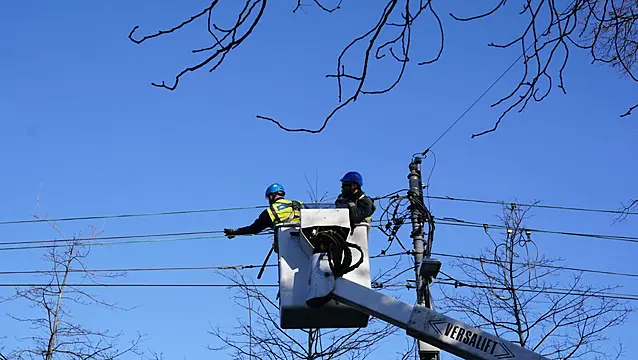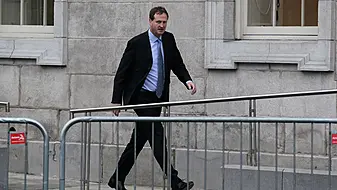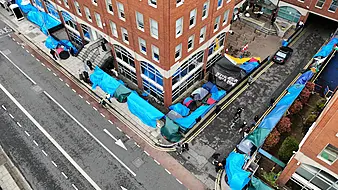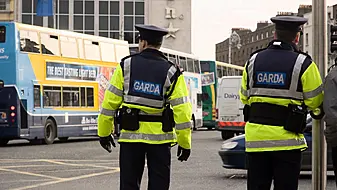A Dublin-born doctor, who now lives and works in the west of Ireland, has spoken of how “two worlds” exist between Dublin and the rest of the country following the destruction of Storm Éowyn.
Speaking on RTÉ radio’s News at One, Dr Catherine Sweeney said it is a crisis situation in large swathes of the west of Ireland.
"This is becoming a humanitarian crisis," she said, adding that the difference between Dublin and the west of Ireland after the storm is "night and day" as thousands still remain without power and water.
“I'm from Glasnevin in Dublin. I happened to have an appointment in Dublin on Monday and I was in my home place in Dublin on Monday. And it is very much business as usual in Dublin.
“There doesn't seem to have been any impact on the people on in the east coast to the same extent that it does in the west.
"That's not the fault of the people in Dublin. But when you travel out of Dublin and you head into the dark and I mean coming in through towns in the west of Ireland on my way home on Monday that were in darkness, there is no light.
“It is a contrast between literally night and day. So there is a sense of us being forgotten. And we have been left to our own devices and this is no disrespect to the people who work in the ESB on the ground. I have great respect for them and I'm sure they are working 24 hours a day."
“But from our perspective. We're not seeing any action on the ground. We are not seeing anyone coming to assist. This is a crisis situation in large swathes of the west of Ireland. This is becoming a humanitarian crisis.
“If you have no water, if you have no electricity, if you have no communications, if you have limited access to medical care, that is essentially a humanitarian crisis. And there is, in my opinion, huge inaction by our elected representatives.”
Dr Sweeney said there was still no power at her practice in Dunmore, Co Galway, so she and her staff were operating from the kitchen of her home in Claremorris which was 25 minutes away.
“My administrators are in my kitchen as they themselves do not have access to broadband because they are out of power and as communications are down," she explained.
"So our phone lines are down and we can't communicate through the phone networks. We are communicating with patients through email and fortunately we can actually see the missed calls so we can contact them by ringing them back, but we can't answer any calls. So that is the situation that we are in at the moment.”
Dr Sweeney was calling to the homes of her most vulnerable patients and had to enlist the help of her predecessor to find the home of one patient who was just out of hospital.
“When I arrived at her home, there was no electricity, no heat, and no water. And this lady was freezing cold, just out of hospital and quite unwell.
“I am gravely concerned for the situation that myself and other GPs in similar situations are in. The issues that are now beginning to rear their head would be we have elderly patients, vulnerable people who have been without basic human needs for the last five days.
"And what is coming through now from the phone calls that we are getting is that we have patients who are beginning to deteriorate. And I have been in contact with nursing homes this morning where patients’ families are trying to get them in so that they can help so that their elderly parents can be warm and fed because they can't do it.
"They can't do that for their parents or elderly relatives at home. So that's where it lies at present."
Dr Sweeney said her and her team have had no communications from any officials or from the HSE.
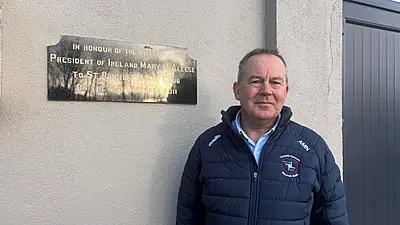
"We've had no offer of assistance. And we provide a service to over 3000 patients. We have a large hinterland and we would see on average 100 patients per day. And that doesn't include administrative contact. That is seeing them face to face.
“We are providing services that include childhood vaccines, acute illness, palliative care. And we are now in a situation where all our vaccines will have to be disposed of. So childhood vaccines will have to be deferred, delayed.
"We have no idea when we will get the next stock in. We have to wait until our electricity is back. So it's a very difficult situation to find yourself in.
“And we are continuously trying to keep people out of our emergency departments. But it is coming to a point where we can't, we can only go so far and we will have to send people to the emergency departments and that will lead to pressure on our hospital systems.”
